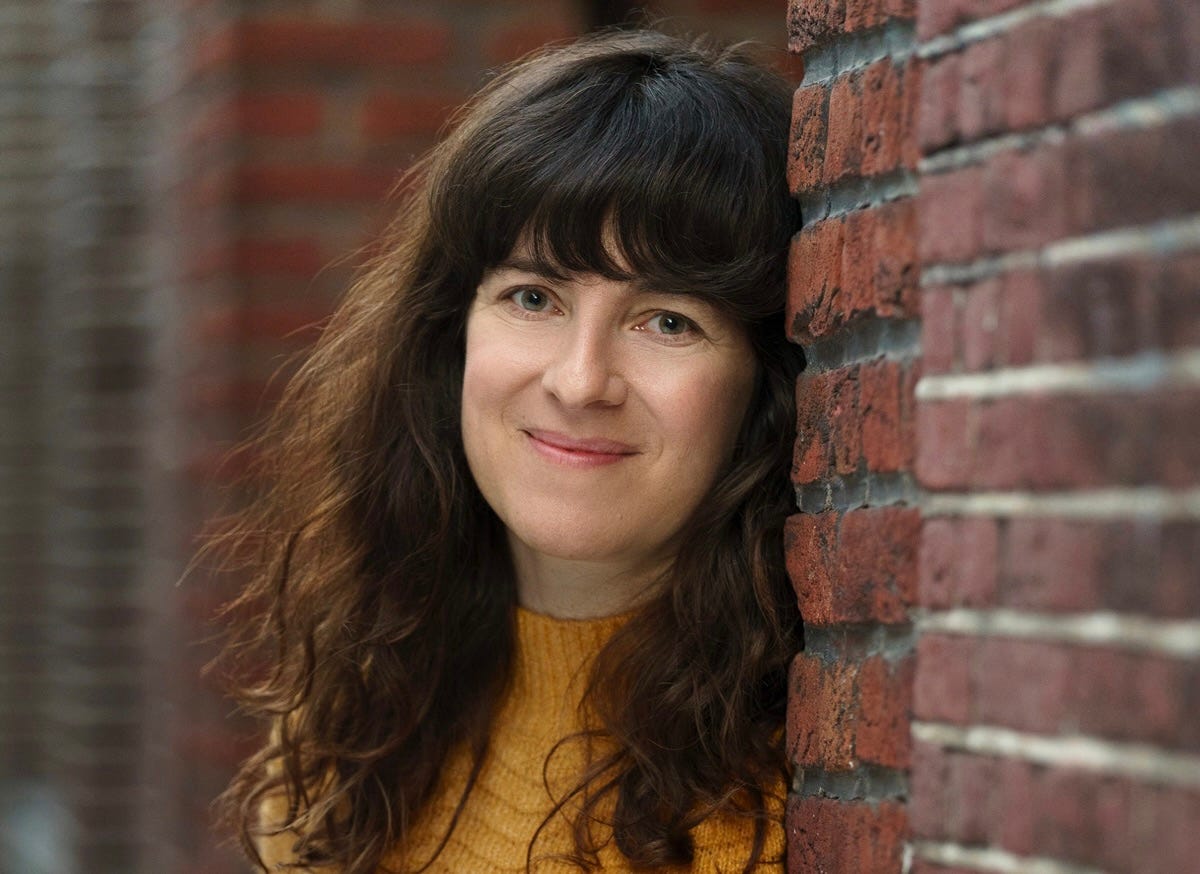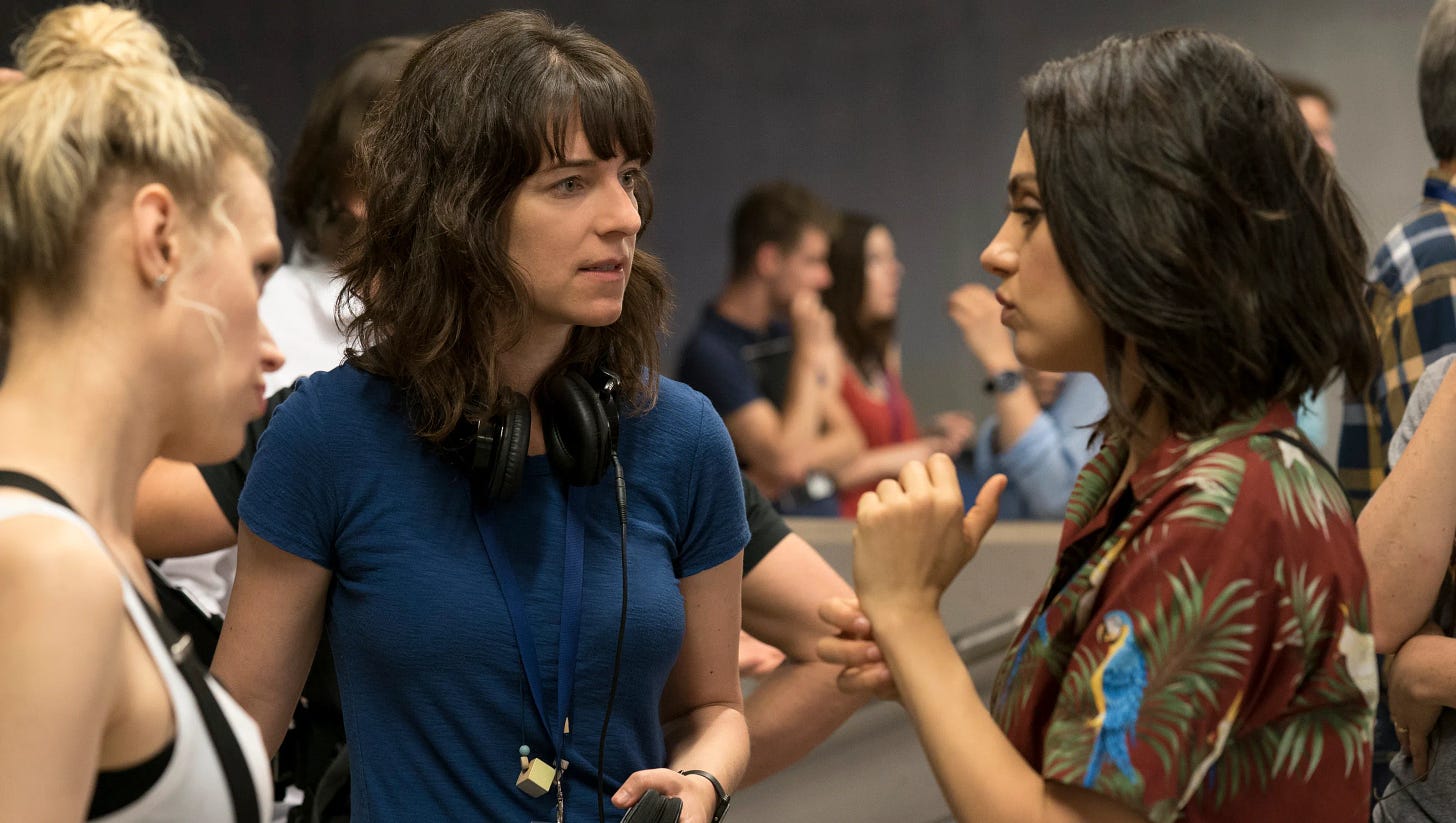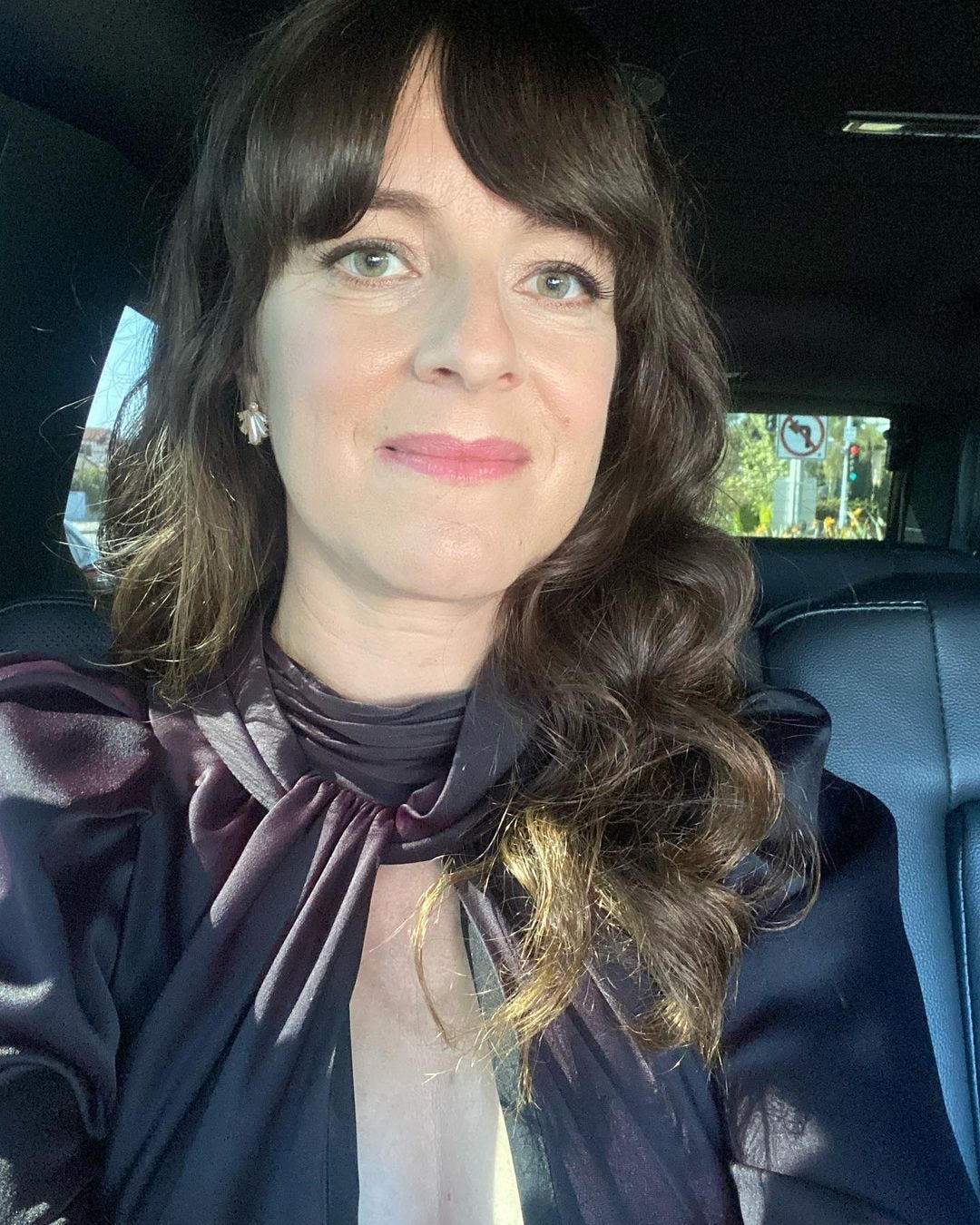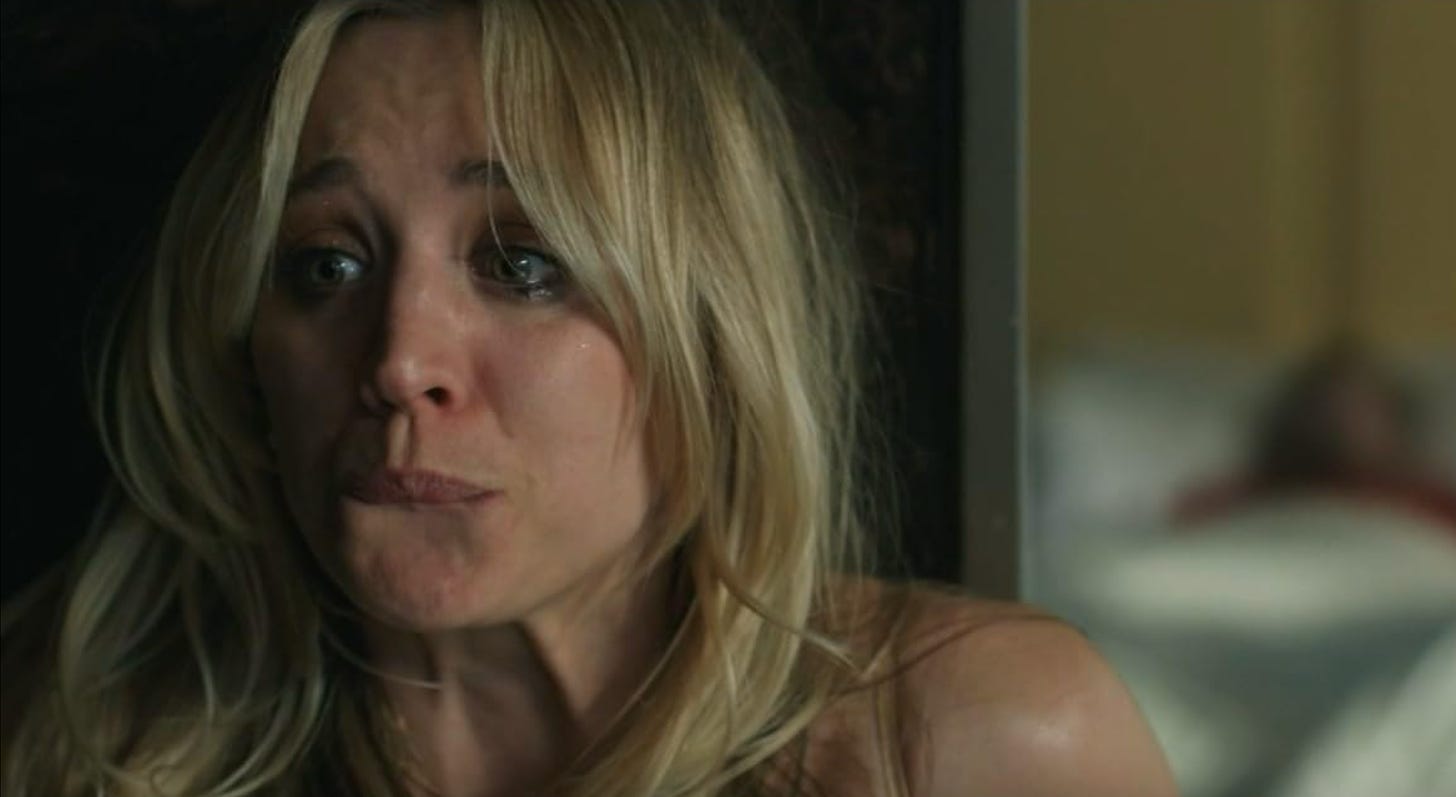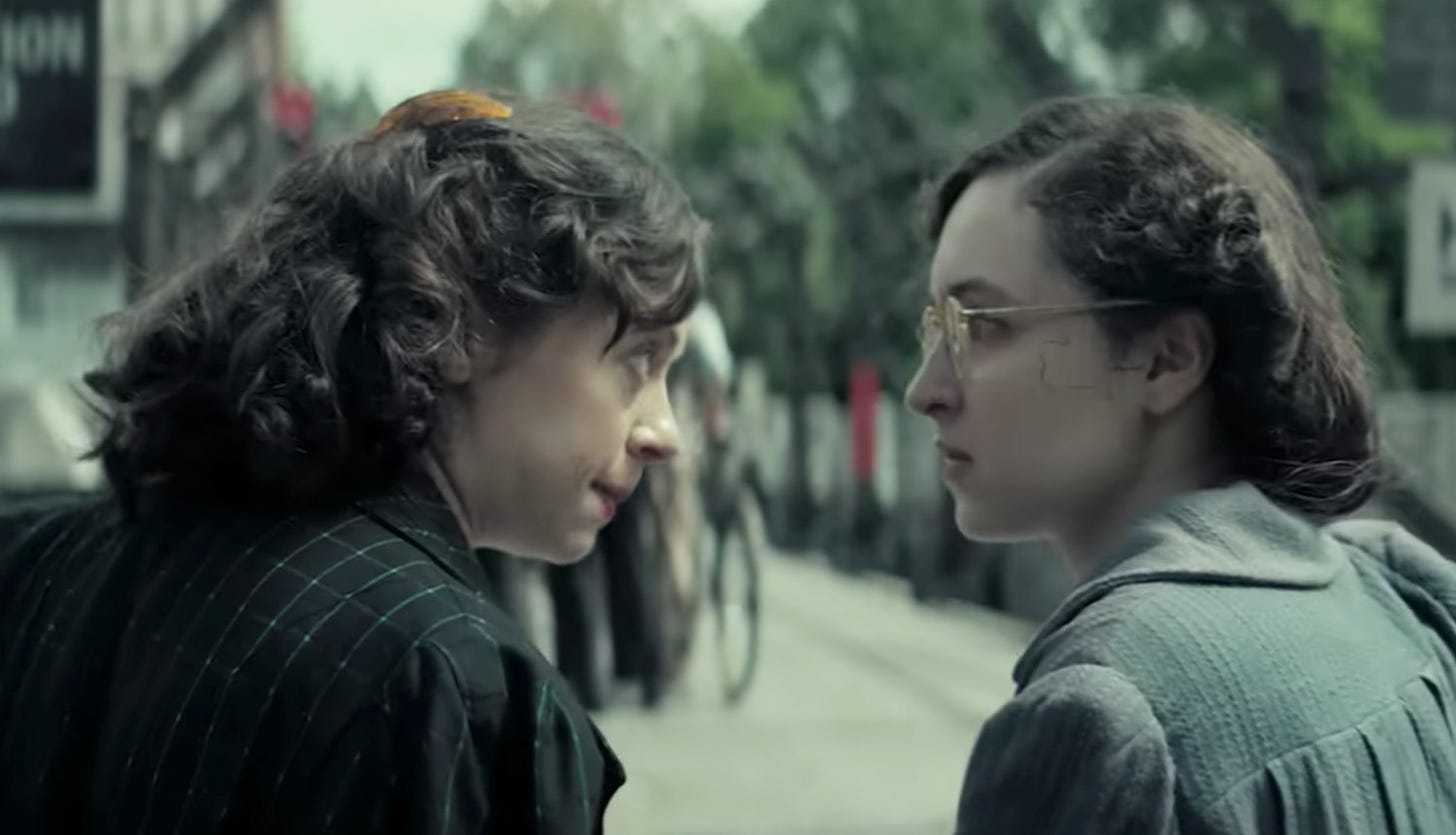Q&A with Susanna Fogel: The 'Cat Person' Director Says the Darndest Things
In between making me laugh my ass off, the filmmaker talks stress dreams, eccentric families, and how she's overcome the challenges of making movies and TV as a woman
What you’re about to read is the thirty-fifth artist-on-artist conversation I’ve had this year for 5AM StoryTalk. Because I’m not a media outlet and my only purpose with this newsletter is to engage in a personal passion for the arts, they all feel like children to me in a way (except fun and not prone to shouting at you about everything). Also like children, I try not to pick favorites. Each has its own qualities I appreciate. But some truly transcend my hopes for them, as this conversation with screenwriter and director Susanna Fogel did. The reason why is simple - she made me laugh my ass off pretty much from start to finish.
Susanna has a new film out at the moment called CAT PERSON, which I was momentarily sad to discover is not a prequel to the Val Lewton film CAT PEOPLE I love so much. Instead, it’s a wickedly dark study of the horrors of modern dating starring Emilia Jones and Greg from “SUCCESSION” (who I should probably call Nicholas Braun at this point). But as keen as I am about the film, which she directed and Michelle Ashford wrote, I was more excited to dive into the whole of her eclectic oeuvre and the connections we could explore between her careers as a screenwriter and director - which only occasionally overlap as they did with her first film LIFE PARTNERS (2014, co-written with Joni Lefkowitz) and THE SPY WHO DUMPED ME (2018; co-written with David Iserson).
As a director, Susanna helmed the aforementioned films and numerous episodes of television - including the first three episodes of this year’s Miep Gies/Anne Frank min-series “A SMALL LIGHT” and the pilot of “THE FLIGHT ATTENDANT”, for which she was nominated for a Best Director Emmy and won a Directors Guild of America award. She was also one of the co-writers of BOOKSMART (2019) and THE ADDAMS FAMILY 2 (2021). As if that’s not enough, her novel NUCLEAR FAMILY: A TRAGICOMIC NOVEL was published in 2017 and she has been a frequent contributor to The New Yorker.
This staggeringly varied CV full of a string of tremendous accomplishments leaves out the fact that Susanna’s first short film made it into both the Toronto International Film Festival and Berlin International Film Festival when she was only fourteen — yes, fourteen! — which makes sense after you discover that Susanna comes from a family of similar over-achievers. For many reasons, I compare the Fogels to J.D. Salinger’s Glass family. This is not a casual comparison, by the way, as you’ll find. I can’t help but feel like I just participated in an excerpt from an unpublished Great American Novel. I hope you enjoy the conversation as much as I did.
For aspiring and emerging filmmakers, I would encourage you to pay special attention to how Susanna uses her family’s background in mental health in how she directs actors and executes her screenplays to anticipate readers’ biases. For those of you who are women, she speaks extensively about her experiences successfully navigating the Hollywood system as one.
COLE HADDON: Tell me, when was the last time you, as an artist, found your heart racing, the perspiration beginning to bead, and the words “Fuck me, I can’t do this” running through your head?
SUSANNA FOGEL: Yesterday. The second the announcement about the WGA deal — which, to be clear, I’m thrilled about generally — hit the news, I got several texts from producers involved in various projects I’m attached to and seized up completely with abject panic and fear. Mostly that I wouldn’t be able to pick up where I left off creatively, that I had completely lost whatever flow state I was in pre-hiatus, due to said hiatus. I then proceeded to have a related stress dream last night in which I had to lead an all-school assembly at my alma mater, in monologue form. Ira Glass was introducing me. Not completely random, he’ll be moderating an event with me for the release of my upcoming film - but as it turns out he also cameos in stress dreams. I had waited until the last minute to prepare anything for this assembly and left only fifteen minutes until 400 students would be arriving, which was just enough time for me to either write some notecards, or find and put on pants, but not both. The only metaphor from the stress dream canon that was missing in that dream was the “losing your teeth” one. Maybe I have Lexapro to thank for keeping that one at bay, assuming Lexapro works in your sleep. Be right back, going to go Google that and procrastinate diving back into my pre-strike writing. Everyone wins in this Q&A.
CH: [Laughter] I love it - because for at least the last thirty seconds, you’ve made me feel less crazy. Okay, you’re the definition of a multi-hyphenate. A director, a screenwriter, and a novelist. I’m curious, how do you identify yourself as an artist first when you think about yourself? What I mean is, when the bank officer asks you what your profession is, what do you say?
SF: I definitely don’t lead with novelist because I’ve only written one book, which was epistolary, so it was essentially a book of monologues, which is to say sort of a script - which is to say I cheated. When dealing with strangers at passport control or equivalent, I usually lead with director because it’s rarer for women and it feels like a point of pride. Male bank tellers raise their eyebrows in a satisfying way, while women sometimes make fun comments in the vein of, “You go, girl,” which is also highly satisfying.
“When dealing with strangers at passport control or equivalent, I usually lead with director because it’s rarer for women and it feels like a point of pride.”
SF (cont’d): The truth is, I feel completely split. I love the incessant sense of community and social interaction and collaboration that constitutes a film set and the directorial process. It stokes the extrovert in me and rejuvenates my life force. That said, at the end of a project — and on weekends during — I can get really exhausted and miss writing, which is just one human at a computer with their brain. On the flip side, writing can be very isolating, so when I’ve finished a writing project, I usually find myself craving the experience of being on set again. I love both for different reasons. But I typically lead with director for my own ego reasons - which is a very director-y reason to do something.
CH: As screenwriters, we work on many projects that either never see the light of day, while it’s much easier to point at what you’ve directed because, well, they’re there on my screen and at the theater. How much do you write these days for the screen compared to the time you spend on set and in editing rooms and such?
SF: I’m coming off of two years of nonstop directing, which included the long-awaited production of two features I’d been trying to make for years - three and five, respectively. So, these days aren’t typical days. I would say in my perfect world, it would be half and half because I’d be able to generate writing that I could then direct, instead of always leapfrogging from project I didn’t write to project I didn’t write, while toiling away fruitlessly for years trying to find funding for projects I wrote before I had any gray hair.
CH: I’ve read THE SPY WHO DUMPED ME. There’s an economy of language in the descriptions that I adored. Typically short, efficient sentences that convey a lot without making you feel like the English language is remotely being abused. They made me think, “Someone who truly understands the moving image wrote these.” You know, like a director. But your direction, by contrast — and it’s varied, so I’m not speaking universally here — but there’s a general elegance by contrast that can often feel very literary.
SF: If you’re saying I write in a way that is adorable and direct in a way that is elegant, then I’ll take it, thank you, Cole!
CH: [Laughter] You’re welcome.
“I was writing a script I knew I wanted to direct and I knew it would be an uphill battle to convince an industry that assumes women can only do one thing — and that thing is not action movies — so part of it was wanting to put the confidence and muscularity I intended to bring to my directorial hand into the stage directions.”
SF: If you’re asking me about my different approaches to the two crafts and how the voices differ, I’d say that what unifies both is that they’re designed to evoke something in the reader/viewer, and that something depends on what the story is. I want you to feel something each time. In a comedy script, I want you to laugh — both because the dialogue is witty and the stage directions feel immediate and immersive — and also be compelled to keep turning the page. Lingering to indulge my own narrative voice in a script fights that goal. Also, in the SPY WHO DUMPED ME script, I was writing a script I knew I wanted to direct and I knew it would be an uphill battle to convince an industry that assumes women can only do one thing — and that thing is not action movies — so part of it was wanting to put the confidence and muscularity I intended to bring to my directorial hand into the stage directions. So, they had swagger and a sense of humor. My co-writer David Iserson and I read some Tony Gilroy scripts and some bad action movie scripts and did a hybrid, a mix of earnest elevated action writing and moments of winking at the audience. We had a few moments where we sent up a few cliches of the genre just a little bit, because it made us laugh but also on some level in order to show my familiarity and ease with action movies, and in so doing, assert that this was, in fact, my lane.
CH: I’m going to return to SPY WHO DUMPED ME and what you’re describing here in a moment, but for now, please continue. I’m fascinated.
SF: Generally, when it comes to directing, I’m guided stylistically by what the project wants. With “THE FLIGHT ATTENDANT”, I wanted people to feel the fun and chaos and color of Cassie’s world because that mirrored the allure of her life pre-sobriety, so I was specifically trying to evoke a feeling in the audience with those choices, and at the same time in other sections of the film I used highly stylized Soderbergh-y choices, like split screens and tiling, because I wanted people to be able to metabolize the show in the correct genre - fun heightened mystery caper.
CH: I have never heard someone describe how someone experiences a show as “metabolizing”, and I promise you I am going to use it a lot going forward.
SF: As someone who attended an all-girls high school in the nineties, I find it challenging not to use diet metaphors like metabolizing to describe really anything and everything. I can also tell you how many calories is in a container of any brand of yogurt if you’re curious, but assuming you’re not, back to my point about signaling to people what they’re watching right up front so they now how to take it in.
As a director, I don’t think it’s my job to have one visual language that is signature to “me” because every story I tell is so different in its genre. Like, I don’t think I am the genre. At least, that’s my approach – I create a visual language in prep that is specific to the psychology of the character, while also setting up the audience to understand what they’re watching and helping guide them away from traps/tropes that will dull the specificity of what I’m going for.
“As a director, I don’t think it’s my job to have one visual language that is signature to ‘me’ because every story I tell is so different in its genre.”
SF (cont’d): For instance, for “A SMALL LIGHT”, a World War II series I directed about the twenty-something woman who housed the Frank family in Amsterdam, I didn’t want people to feel like it was a typical Holocaust show that was impersonal and dreary and homeworky because I wanted them to be more immersed and engaged in the relatable story of this young woman dealing with some moral choices but also having normal twenty-something issues like a quarter-life crisis, sex, and friendships. It was all happening at once. So, I made some specific choices to make sure the audience felt really present and like it defied the typical period piece - like handheld for a fight between Miep and her husband Jan that made it feel like it could be a fight anyone would have with their partner in any period of time, because it has that sense of “anything can happen”. Emotions are running high and people aren’t being super-articulate. There’s a chaos to it. That was also true of fights in 1941, but we don’t usually see them filmed like that. So, in that case, that was one visual choice that was just about helping to frame the experience of viewing for an audience and try to poke them out of the complacency with which they or we usually watch things.
CH: I’m curious how the two crafts — screenwriting and directing — have influenced each other in how you tell stories. By that, I mean has your experiences as a director changed, challenged, improved, or even sometimes undermined how you like to write screenplays? Or vice versa, how does the fact that you’re also a screenwriter affect how you approach other people’s screenplays such as CAT PERSON?
SF: In a few ways. Inasmuch I’ve been a writer who has seen her work directed by other directors and in some cases, botched by them, I try hard to be an ally to the writer I’m working with. I try to give them a good experience and feel like their work was seen and understood by a person who gets how their brain works, and then brought my own visual ideas into helping to accomplish and enhance the telling of their story. So, I try to take the nugget of what led them to write this thing and why, and then add my own analysis to the best way to make it land. Sometimes that means shading some of my own themes in, but I try not to just actively subvert anything they intended.
“I’ve been a writer who has seen her work directed by other directors and in some cases, botched by them, [so] I try hard to be an ally to the writer I’m working with.”
The other thing I feel pretty good about doing is helping to troubleshoot on set if there’s a moment or a line that’s not working for an actor and they want an alt or a little on the fly adjustment. I always shoot what the writer wrote first, but sometimes I will pitch alts or try to adjust when things aren’t working for the team actually translating the words to the screen and I feel comfortable that my alts aren’t totally off base. That they’re in line with the tone and tenor and language the writer would have used if they were there. I also rewrite or tweak my own scripts on the day when I’m directing them so it’s not a judgment of anything except how dynamic the process is of evaluating, moment to moment, if what you’re filming is working. And if not, why not and is there anything I can do on a script level to help it sing.
CH: Okay, I did a bad thing. I never look artists up on Wikipedia before I chat with them, but I made that mistake with you, Susanna. Let’s talk about family. Your father is a Harvard Medical School neuropsychiatrist who founded the American Neuropsychiatric Association. Your mother is a psychologist. Your grandfather was personal lawyer to L.A. Mayor Tom Bradley. And not to be outdone, your uncle was a U.S. district judge. Are you, this filmmaker extraordinaire, the black sheep of your family?
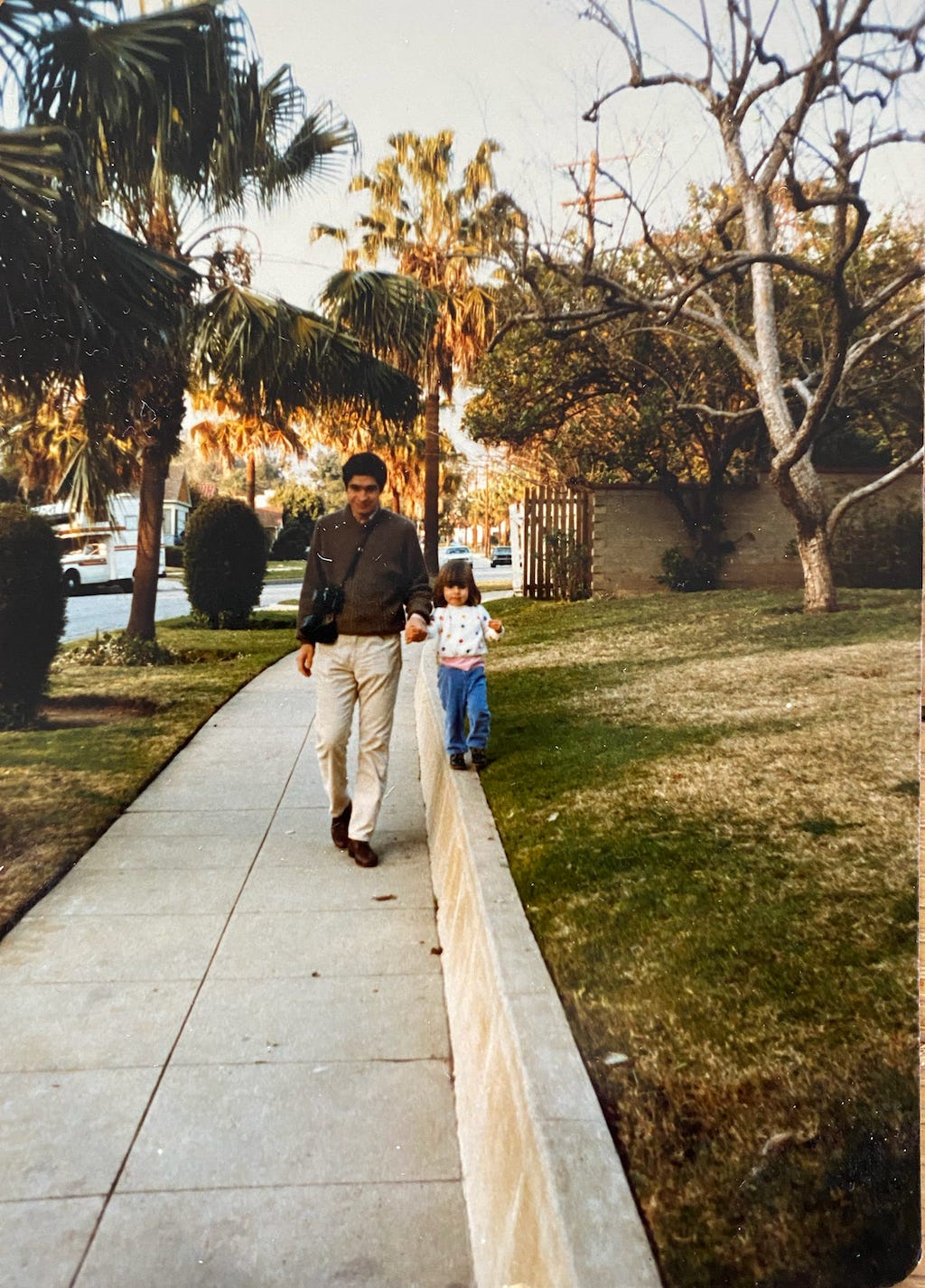
SF: First of all, it’s so embarrassingly obvious that my dad clearly edited the hell out of my Wikipedia page. Why would he take it upon himself to do that? Who knows. Why does the man write limericks in his spare time, and forage for mushrooms along the Paul Revere trail in Lexington, Massachusetts to infuse his homemade brandy with? Again, reader, I am as confused as you are.
CH: Honestly, he sounds like someone I want to know. I make jam and limoncello and I pickle asparagus, but making my own brandy…I’m going to go look up how to do that now.
SF: Take my word for it, it’s disgusting. Also, he accidentally fed his family toxic mushrooms last year and they all ended up puking for days.
“It’s so embarrassingly obvious that my dad clearly edited the hell out of my Wikipedia page.”
CH: Wait, what?
SF: This is what happens when Jews try to go outside. But on that note, it does paint a picture of the quirky family I come from, where weirdness was celebrated.




